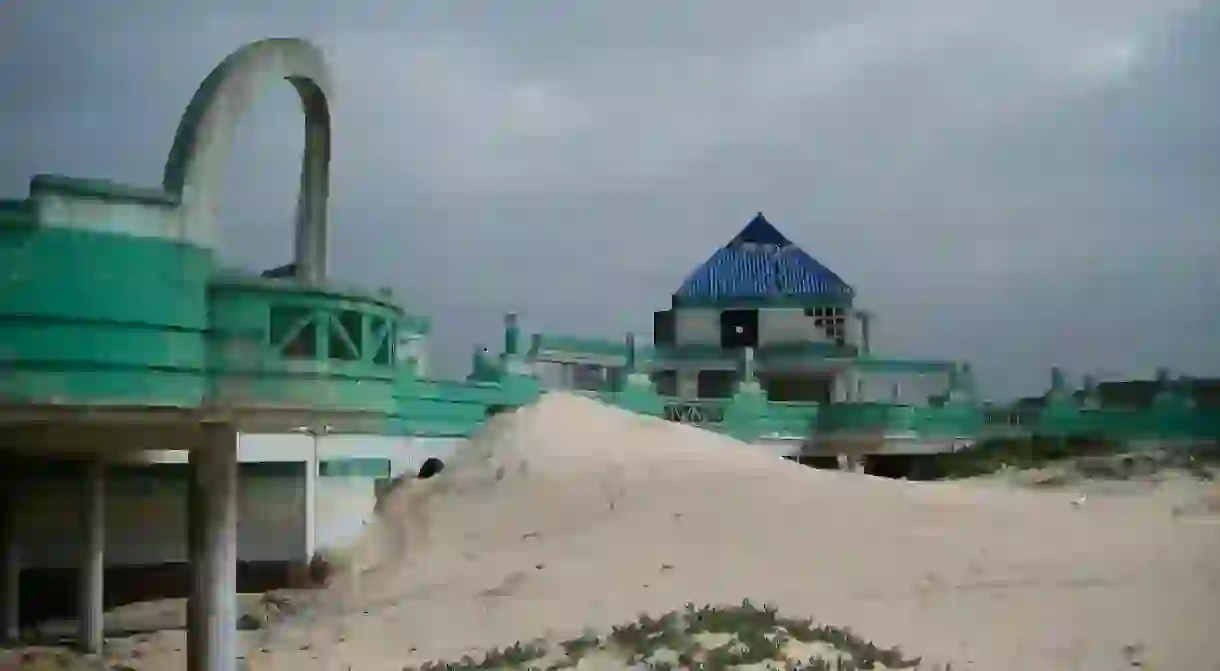Macassar Beach Pavilion: Cape Town's Abandoned Water Park

Hidden amid sand dunes and scraggly vegetation in Macassar, on the False Bay coast, lies a series of derelict buildings and broken water slides faded by the sun. This seemingly out of place structure is the Macassar Beach Pavilion — an abandoned water park overlooking the sea. In fact, most Capetonians have never even heard of it.
The brightly-painted ruins create an eerie setting against a backdrop of sand dunes and sparkling blue sea. Built in 1991, the park was once a popular beach resort that attracted hundreds of families from the Cape Flats.




After a string of financial mishaps, the water park was abandoned — left to the mercy of the harsh South-Easter wind and shifting sand dunes. Sand has completely engulfed the once vibrant buildings, infiltrating concession stands, changing rooms, water slides and swimming pools. Inside the derelict buildings, window panes are bare, walls are sprawled with graffiti and chipped blue paint provides the only clue to what the interior once looked like. The ground is littered with broken glass, tiles and bricks.




The deserted site draws many curious sightseers and photographers for whom the derelict buildings, contrasted by sand and sea, are an ideal location for photo shoots. An internet search brings up countless photo documentaries of the abandoned water park.



Located near Strand, the abandoned park is situated in the Macassar Dunes Conservation Area — a 2,760 acre reserve that protects the sand dunes and unique fynbos in the area, including the last remaining forest of white milkwood trees in the city. The reserve is also home to the largest and highest dune system in the Cape Peninsula.
Macassar Beach, a beautiful windswept area, is named after Sheikh Yusuf (Abadin Tadia Tjoessoep) of the Sultanate of Gowa, in what is today Makassar in Indonesia.
Sheikh Yusuf was exiled to the Cape of Good Hope by the Dutch in 1694, and is regarded as the founder of the Islamic faith in Cape Town. His kramat or shrine is located on a hill on the eastern edge of the reserve and is still a site of worship and pilgrimage. To this day, Muslims from all over South Africa regularly visit the shrine to pay their respects.














